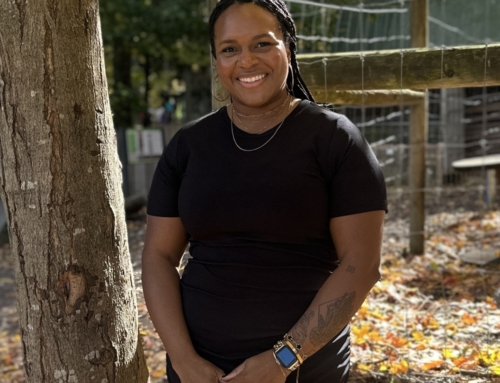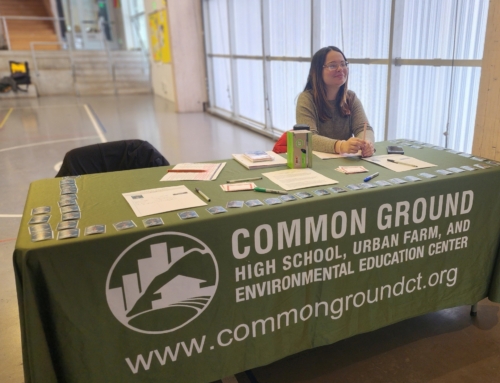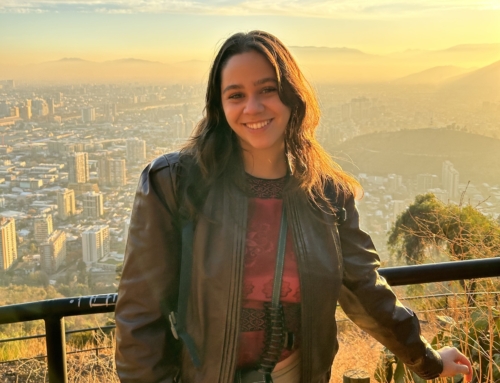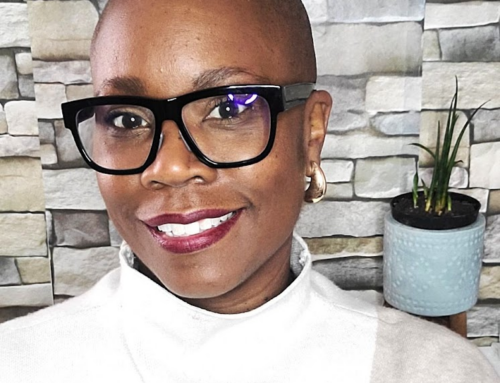Increasingly, Common Ground students are diving into work to support food security and urban agriculture — both in their classes and outside school, on our site and in the community. Shannon Raider, Farm Manager and Director of Agricultural Programs, and Sarah Tracy-Wanck, Youth Leadership for Community Food Security Coordinator, are pushing and supporting students as they take on this work. One example of this growing work: This month, several of our our students attended a conference of the Northeast Organic Farming Association — an organization whose purpose is to” advocate for and educate about organic and sustainable agriculture, family-scale farming and homesteading both rural and urban, agricultural justice, and related issues.”
Written By: Sarah Tracy-Wanck, Youth Leadership for Community Food Security
We met at Common Ground before the sun rose on a Saturday- sleepy, but ready to embark on a journey to Massachusetts and a long day of workshops, food, and conversation.
We traveled two hours to Worcester State University in Worcester, MA to attend the Northeast Organic Farming Association Massachusetts Winter Conference. The Massachusetts Conference is one of the biggest in the Northeast and attracts an incredible array of rural and urban farmers. The workshop, topics, and participants reflected the diversity of perspectives towards food and agriculture and allowed us to learn about cutting edge sustainable designs, and farming practices.
All five of the students who attended the conference are fast becoming leaders in Common Ground’s agriculture and food justice programs: learning how to raise chickens for meat, building gardens for New Haven schoolchildren, and participating in Food Policy Council Working Group meetings. Students found connections to the work they are doing, inside and outside of classroom, endless at the conference. Urban farming champion and keynote speaker Karen Washington spoke directly to the issues of food justice that informs our work as a school and a part of the larger New Haven community. We reflected on her term “food apartheid,” which she uses to describe communities with little or no access to healthy and affordable food. Also referred to as “food deserts,” or “food swamps,” these are often situated in poor communities and communities of color. Addressing the fact that those terms often gloss over dire inequities with hip terminology, Karen Washington advises us to “Call it what it is. Poverty and hunger.” Towards the end of her speech, Karen identified the issue of access to food as a component of our ongoing civil and human rights battle, concluding with, “Folks, I live in the Bronx, but I still live in America.”
On the drive home we sang pop songs, nominated each other for POWER awards-of-the-day, and discussed how we can apply our new knowledge and ideas to our school and home communities. Each had joined in workshops that left them intrigued and eager to take action. Freshman Maritza Rodriguez attended a “Combing and Carding in Preparation for Spinning” workshop in order to understand how she might be able to start working with the wool that our sheep produce. Kathiana Torres and Stephanie Torres, who are about to take on care of our laying flock as part of our student-run egg business, attended an “Advanced Chicken Workshop.” There, they learned about different chicken-tractor designs, culling techniques and timing, and chicken reproduction. Anthony Duff explained, “I went to the ‘Gardening in Small Spaces’ workshop and got some really good ideas that I want to use in my garden at home.” Anthony also attended the workshop run by members of the Food Project, gathering ideas and inspiration from the teenage facilitators. iranda Bailey-Russomano, who has expressed an interest in a future in agriculture, attended many workshops related to her career goals, such as “Access to Land.” As we traded POWER nominations, Stephanie Torres stood out in all of our minds through her ability to strike up a conversation with anyone and everyone at the conference. Over the course of the day she discussed the Common Ground mission, traded business cards with farmers and educators, identified some potential POWER speakers, and discussed various agriculture-related issues.
As we headed back into New Haven, we discussed attending the Summer NOFA conference and identified various seminar topics that students could lead. An agriculture-related student-run business workshop? Urban composting designs? Modern food industrial complex 101? So many ideas, so much to do…





Leave A Comment